Themed collection Tutorial Reviews in Soft Matter

A tutorial for mesoscale computer simulations of lipid membranes: tether pulling, tubulation and fluctuations
A tutorial review on mesoscale computer simulations of fluid lipid membranes presenting three tutorials with repositories of ready-to-run codes for tether pulling, membrane tubulation and membrane fluctuation analysis.

Soft Matter, 2025,21, 7736-7756
https://doi.org/10.1039/D5SM00148J
Drag forces in granular materials
This tutorial review introduces some non-trivial properties of the drag force experienced by objects moving through granular materials, including dependencies on the velocity of the object and the pressure around it, and associated scaling laws.

Soft Matter, 2025,21, 7005-7013
https://doi.org/10.1039/D5SM00521C
Hacktive matter: data-driven discovery through hackathon-based cross-disciplinary coding
We describe approaches, results and insights from multi-year hackathons to enable their use in soft matter training and innovation.

Soft Matter, 2025,21, 5381-5392
https://doi.org/10.1039/D5SM00401B
Aromatic–carbohydrate amphiphiles and self-assembly into supramolecular glycostructures
This Tutorial Review article provides a succinct compilation and discussion of the advancements in aromatic–carbohydrate amphiphiles and their chiral self-assembly processes, with the aid of a number of carefully designed synthetic precursors.

Soft Matter, 2025,21, 5173-5187
https://doi.org/10.1039/D5SM00123D
Optical coherence tomography in soft matter
Optical coherence tomography (OCT) has been introduced through detailed tutorials, accompanied by a code package, as a powerful technique suitable for versatile investigations in fluid mechanics and soft matter physics.

Soft Matter, 2025,21, 3425-3442
https://doi.org/10.1039/D4SM01537A
Methylene glycol-sulfite pH-clocks for the time-programming of soft materials: advantages, limitations, and yet unexplored opportunities
This Tutorial Review showcases methylene glycol-sulfite pH-clocks and their use for the time-programming of soft matter self-assembly and chemomechanical actuation.

Soft Matter, 2024,20, 6092-6102
https://doi.org/10.1039/D4SM00604F
Dynamic duos: the building blocks of dimensional mechanics
Mechanics studies the relationships between space, time, and matter.

Soft Matter, 2024,20, 5475-5508
https://doi.org/10.1039/D4SM00263F
Spatiotemporal mapping of nanotopography and thickness transitions of ultrathin foam films
Schematic of the set-up used for implementing IDIOM (interferometry digital imaging optical microscopy) protocols to visualize ultrathin films using reflected light microscopy and obtain nanotopography by converting pixelwise interference intensity into thickness.

Soft Matter, 2024,20, 3719-3727
https://doi.org/10.1039/D4SM00048J
Non-Maxwellian viscoelastic stress relaxations in soft matter
Soft matter systems often exhibit viscoelastic stress relaxation processes that deviate from the Maxwell model of linear viscoelasticity. We survey their diverse physical origins, and introduce mathematical models for describing these processes.

Soft Matter, 2023,19, 7885-7906
https://doi.org/10.1039/D3SM00736G
The random walker's toolbox for analyzing single-particle tracking data
Technological advances have boosted the use of quantitative tracking experiments. Here we introduce, discuss, and apply a large toolbox of versatile measures and routines for an in-depth analysis of single-particle tracking trajectories.

Soft Matter, 2023,19, 5206-5222
https://doi.org/10.1039/D3SM00557G
Spreading, pinching, and coalescence: the Ohnesorge units
A tutorial review of the scaling laws and systems of units for the spreading, coalescence and pinching dynamics of simple fluids.

Soft Matter, 2022,18, 3291-3303
https://doi.org/10.1039/D2SM00069E
Using small angle scattering to understand low molecular weight gels
We provide a tutorial review for beginners on the application of small angle X-ray and neutron scattering to supramolecular gels.
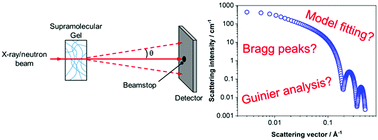
Soft Matter, 2022,18, 1577-1590
https://doi.org/10.1039/D1SM01707A
Diffuse scattering from lamellar structures
Fluctuations in lamellar phases give rise to diffuse scattering, which can provide valuable information on the elastic properties of lamellae. Models to account for this are described, and diffuse scattering from in-plane fluctuations or structures such as perforations or patterned nanoparticles is considered.
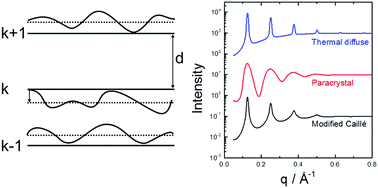
Soft Matter, 2022,18, 711-721
https://doi.org/10.1039/D1SM01758F
Continuum-scale modelling of polymer blends using the Cahn–Hilliard equation: transport and thermodynamics
This review explores the physical features of the Cahn–Hilliard equation and how various thermodynamic models can be incorporated to study mixtures such as polymer blends.

Soft Matter, 2021,17, 5645-5665
https://doi.org/10.1039/D1SM00272D
Shear-induced diffusion in dense granular fluids
Granular materials are comprised of solid, athermal grains. Whilst immune to thermal motion, these grains move and diffuse when they undergo shear deformation.

Soft Matter, 2021,17, 5271-5277
https://doi.org/10.1039/D1SM00422K
Isothermal titration calorimetry: practical approaches and current applications in soft matter
Isothermal Titration Calorimetry (ITC) elucidates the thermodynamic profile (ΔH, ΔS, ΔG, Ka, and stoichiometry) of binding and dissociation reactions in solution.

Soft Matter, 2020,16, 8760-8774
https://doi.org/10.1039/D0SM01345E
Mechanical chiral resolution
In this review, we show that these interactions are of importance even at the nanoscale. Mechanical chiral resolution is promising in the field of soft matter and for industry.
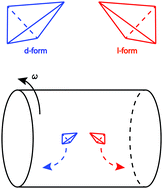
Soft Matter, 2019,15, 4593-4608
https://doi.org/10.1039/C9SM00778D
Colloidal particles at fluid interfaces: behaviour of isolated particles
We review the adsorption of colloidal particles at fluid interfaces, highlighting the effects of particle shape and chemistry.

Soft Matter, 2019,15, 1186-1199
https://doi.org/10.1039/C8SM02048E
Mesoscopic modelling and simulation of soft matter
This tutorial review gives a comparative introduction to some of the most popular mesoscopic simulation methods and their application to soft and flowing matter.
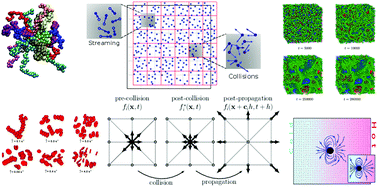
Soft Matter, 2018,14, 9-26
https://doi.org/10.1039/C7SM01711A
Trichomes as a natural biophysical barrier for plants and their bioinspired applications
This review offers a new perspective of interdisciplinary research both on functions of plant trichomes and their biomimetic applications.

Soft Matter, 2017,13, 5096-5106
https://doi.org/10.1039/C7SM00622E
111 years of Brownian motion
We consider the Brownian motion of a particle and present a tutorial review over the last 111 years since Einstein's paper in 1905.
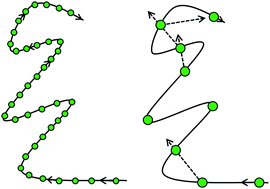
Soft Matter, 2016,12, 6331-6346
https://doi.org/10.1039/C6SM01153E
Challenges in tissue engineering – towards cell control inside artificial scaffolds
Control of living cells is vital for the survival of organisms. Each cell is exposed to diverse external mechano-chemical cues, all coordinated in a spatio-temporal pattern. Here, we describe how external mechano-chemical cues influence intracellular information transport for specific control of cell functions, especially for cell migration.
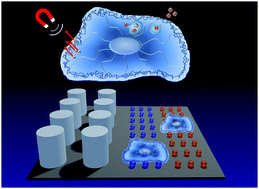
Soft Matter, 2016,12, 4287-4294
https://doi.org/10.1039/C5SM02844B
On scattered waves and lipid domains: detecting membrane rafts with X-rays and neutrons
In order to understand the biological role of lipids in cell membranes, it is necessary to determine the mesoscopic structure of well-defined model membrane systems.
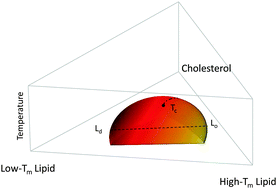
Soft Matter, 2015,11, 9055-9072
https://doi.org/10.1039/C5SM01807B
Polyelectrolyte brushes: theory, modelling, synthesis and applications
A tutorial review of the theory, modelling, synthesis, and applications of polyelectrolyte brushes is presented.
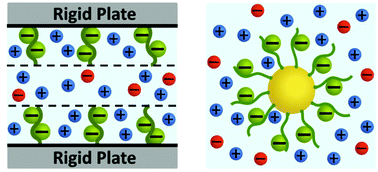
Soft Matter, 2015,11, 8550-8583
https://doi.org/10.1039/C5SM01962A
Celebrating Soft Matter's 10th anniversary: Testing the foundations of classical entropy: colloid experiments
By performing experiments on colloids, one can establish that certain definitions of the classical entropy fit the data, while others in the literature do not.
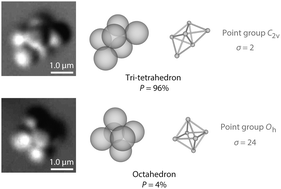
Soft Matter, 2015,11, 6538-6546
https://doi.org/10.1039/C5SM01014D
Non-aqueous microgel particles: synthesis, properties and applications
Advances in microgel particles swollen in non-aqueous solvents and the challenges in their characterisation, synthesis and potential applications are discussed.
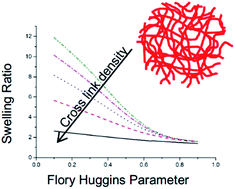
Soft Matter, 2014,10, 9384-9398
https://doi.org/10.1039/C4SM01834F
Recent progress in ferrofluids research: novel applications of magnetically controllable and tunable fluids
Ferrofluids are suspensions of magnetic nanoparticles that have the attractive feature of being controlled by applied magnetic fields. Ferrofluids have been studied for decades in an ever growing number of applications that take advantage of their response to applied magnetic fields. Here, we provide a summary of recent advances in established and emerging applications of ferrofluids.
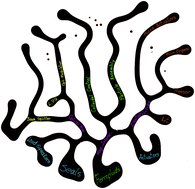
Soft Matter, 2014,10, 8584-8602
https://doi.org/10.1039/C4SM01308E
Engineering entropy in soft matter: the bad, the ugly and the good
Although often fought against or designed accidentally, the intelligent design of entropy can lead to novel materials and phase behaviours.
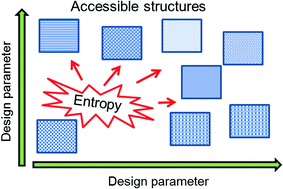
Soft Matter, 2014,10, 8388-8400
https://doi.org/10.1039/C4SM01646G
Thin multicomponent films for functional enzyme devices and bioreactor particles
Complex functional films containing enzymes and other biomolecules are easily fabricated in nm-scale thicknesses by using layer-by-layer (LbL) methodologies.
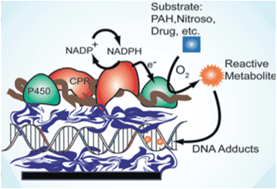
Soft Matter, 2014,10, 8145-8156
https://doi.org/10.1039/C4SM01679C
Traction force microscopy in physics and biology
We review diverse applications of traction force microscopy and provide detailed instructions, including computer code, for performing it.
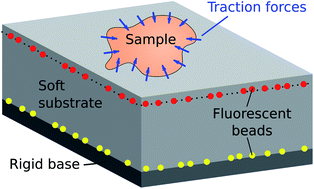
Soft Matter, 2014,10, 4047-4055
https://doi.org/10.1039/C4SM00264D
Directed self-assembly of block copolymers: a tutorial review of strategies for enabling nanotechnology with soft matter
This tutorial review examines directed self-assembly of block copolymers as canonical examples of nanostructured soft matter systems. Well-established and newly emerging methods are surveyed along with perspectives on future directions.
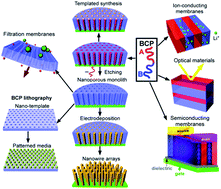
Soft Matter, 2014,10, 3867-3889
https://doi.org/10.1039/C3SM52607K
“The hydrogen atom of fluid dynamics” – introduction to the Taylor–Couette flow for soft matter scientists
A tutorial review providing the essential Newtonian background for anyone interested in the non-Newtonian Taylor–Couette problem.

Soft Matter, 2014,10, 3523-3535
https://doi.org/10.1039/C3SM52828F
Total internal reflection spectroscopy for studying soft matter
This review explores how total internal reflection spectroscopy can be used to probe soft matter interfaces.

Soft Matter, 2014,10, 1071-1096
https://doi.org/10.1039/C3SM52817K
Using small-angle scattering techniques to understand mechanical properties of biopolymer-based biomaterials
The design and engineering of innovative biopolymer-based biomaterials for a variety of biomedical applications should be based on the understanding of the relationship between their nanoscale structure and mechanical properties.

Soft Matter, 2013,9, 10218-10228
https://doi.org/10.1039/C3SM51209F
The jamming perspective on wet foams
Amorphous materials as diverse as foams, emulsions, colloidal suspensions and granular media can jam into a rigid, disordered state where they withstand finite shear stresses before yielding.

Soft Matter, 2013,9, 9739-9746
https://doi.org/10.1039/C3SM51543E
Acoustic streaming in gas-fluidized beds of small particles
The effect of a high intensity sound wave on the gas streamlines through a fixed array of cylinders.

Soft Matter, 2013,9, 8792-8814
https://doi.org/10.1039/C3SM50780G
The use of solvent relaxation NMR to study colloidal suspensions
We discuss how solvent relaxation nuclear magnetic resonance has been used to study the interactions within complex colloidal suspensions.
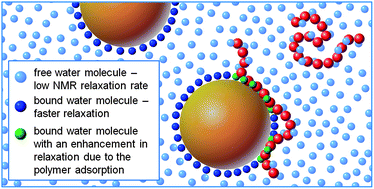
Soft Matter, 2013,9, 7211-7228
https://doi.org/10.1039/C3SM51067K
Tunable and dynamic soft materials for three-dimensional cell culture
Dynamic biomaterials for cell culture can be used to mimic temporal changes that occur in the native extracellular matrix.
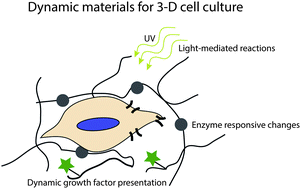
Soft Matter, 2013,9, 6737-6746
https://doi.org/10.1039/C3SM50217A
Thermoresponsive self-assembled polymer colloids in water
Polymer colloids with thermoresponsive polymers as the hydrophobic core, hydrophilic corona or both of them depending on temperature are discussed and their potential bio-related applications highlighted.

Soft Matter, 2013,9, 5839-5861
https://doi.org/10.1039/C3SM50428J
Elucidation of molecular structures at buried polymer interfaces and biological interfaces using sum frequency generation vibrational spectroscopy
In situ and in real time study of molecular presence and orientation at buried interfaces: SFG.
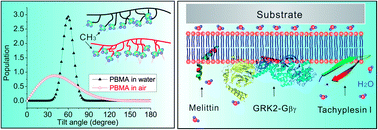
Soft Matter, 2013,9, 4738-4761
https://doi.org/10.1039/C3SM27710K
Continuum- and particle-based modeling of shapes and dynamics of red blood cells in health and disease
Recent advances in modeling of healthy and diseased red blood cells and blood flow in the microcirculation are reviewed.
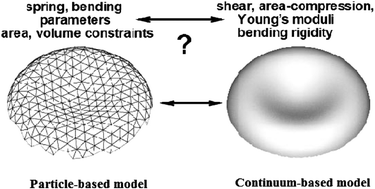
Soft Matter, 2013,9, 28-37
https://doi.org/10.1039/C2SM26891D
Neutron scattering and molecular dynamics simulations: synergetic tools to unravel structure and dynamics in polymers
Synergetic combination of neutron scattering and fully atomistic molecular dynamics simulations provides unprecedented insight into polymer structure and dynamics.

Soft Matter, 2012,8, 8257-8270
https://doi.org/10.1039/C2SM26061A
Assembly and stability of α-helical membrane proteins
This article review recent experimental and theoretical studies of the insertion and stability of α-helical membrane proteins.
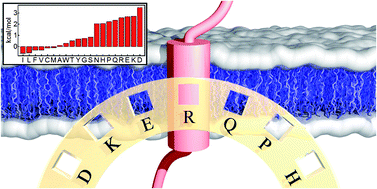
Soft Matter, 2012,8, 7742-7752
https://doi.org/10.1039/C2SM25402F
Intracellular sensing and cell diagnostics using fluorescent silica nanoparticles
This review presents recent progress in the implementation of fluorescent silica NPs in intracellular analyte monitoring, cellular targeting and cancer cell diagnosis.

Soft Matter, 2012,8, 2579-2585
https://doi.org/10.1039/C2SM06862A
Potential “ways of thinking” about the shear-banding phenomenon
From the motion of a particle in a potential well to shear-banding in complex fluids. Sliding from mechanics to thermodynamics.
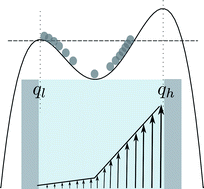
Soft Matter, 2012,8, 910-922
https://doi.org/10.1039/C1SM06165H
Soft microorigami: self-folding polymer films
The manuscript overviews recent advances in development and application of polymer films, which are able to fold and form 3D structures.
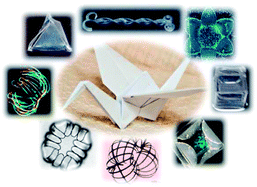
Soft Matter, 2011,7, 6786-6791
https://doi.org/10.1039/C1SM05476G
Self-assembly of amphiphilic peptides
The self-assembly of amphiphilic peptides and peptide amphiphiles is reviewed.

Soft Matter, 2011,7, 4122-4138
https://doi.org/10.1039/C0SM01218A
Edible nanoemulsions: fabrication, properties, and functional performance
Edible nanoemulsions can be formed using a variety of different low-energy or high-energy methods. In this case, spontaneous emulsification is demonstrated.
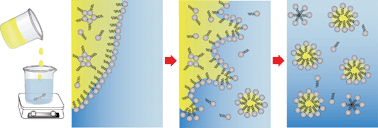
Soft Matter, 2011,7, 2297-2316
https://doi.org/10.1039/C0SM00549E
Controlled growth and assembly of one-dimensional ordered nanostructures of organic functional materials
We review the novel techniques for the fabrication of highly ordered 1D organic nanostructures and their application for the development of high performance devices and circuits.
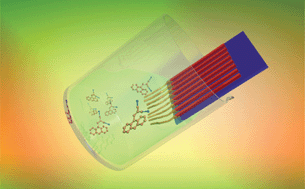
Soft Matter, 2011,7, 1615-1630
https://doi.org/10.1039/C0SM00762E
Exploring internal protein dynamics by neutron spin echo spectroscopy
Large scale domain motions on several ten nanosecond timescales can be accessed by means of small angle neutron scattering and neutron spin-echo spectroscopy.
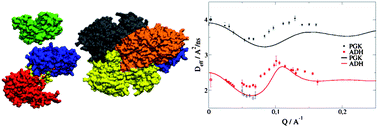
Soft Matter, 2011,7, 1299-1307
https://doi.org/10.1039/C0SM00683A
Why size and speed matter: frequency dependence and the mechanical properties of biomolecules
Softer or harder: a question of rate for biomolecules and cells.

Soft Matter, 2011,7, 332-342
https://doi.org/10.1039/C0SM00425A
Very small bubbles at surfaces—the nanobubble puzzle
Nanobubbles: what do we know and how can we understand their surprising stability and morphology?
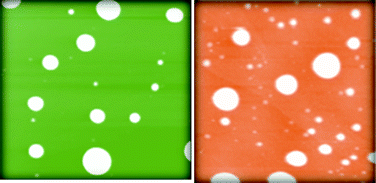
Soft Matter, 2011,7, 40-48
https://doi.org/10.1039/C0SM00558D
The mechanics of non-Euclidean plates
Non-Euclidean plates: self shaping of soft sheets via differential growth

Soft Matter, 2010,6, 5693-5704
https://doi.org/10.1039/C0SM00479K
Dendrons/dendrimers : quantized, nano-element like building blocks for soft-soft and soft-hard nano-compound synthesis
This review focuses on well-defined soft nanoparticles (i.e., dendron/dendrimer type nano-elements) and their ability to form nano-compounds/assemblies, as well as exhibit nano-periodic property patterns much as traditional atom based elements.
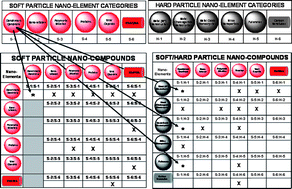
Soft Matter, 2010,6, 456-474
https://doi.org/10.1039/B917370F
Experimental approaches to membrane thermodynamics
This review demonstrates how weak and non-specific membrane interactions such as membrane hydration and small-molecule membrane partitioning can be elucidated from different thermodynamic measurements.
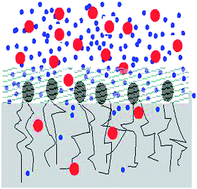
Soft Matter, 2009,5, 3249-3257
https://doi.org/10.1039/B901695C
Neutron and X-ray scattering for biophysics and biotechnology: examples of self-assembled lipid systems
This Tutorial Review introduces the reader to some commonly used neutron and X-ray scattering techniques, and describes their recent applications to self-assembled lipid systems of interest to biotechnology and biophysics.
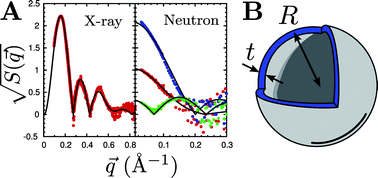
Soft Matter, 2009,5, 2694-2703
https://doi.org/10.1039/B819799G
Self-assembly : from crystals to cells
This Review examines the progress in self-assembly research from equilibrium systems toward non-equilibrium/dynamic systems, which will provide a basis for the adaptive, self-replicating, and self-healing materials of the future.
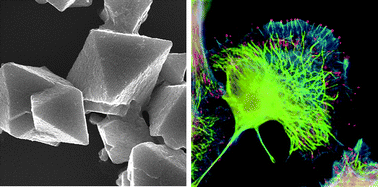
Soft Matter, 2009,5, 1110-1128
https://doi.org/10.1039/B819321P
About this collection
This themed collection contains Tutorial Review articles published by Soft Matter. New articles will be regularly added to this collection.